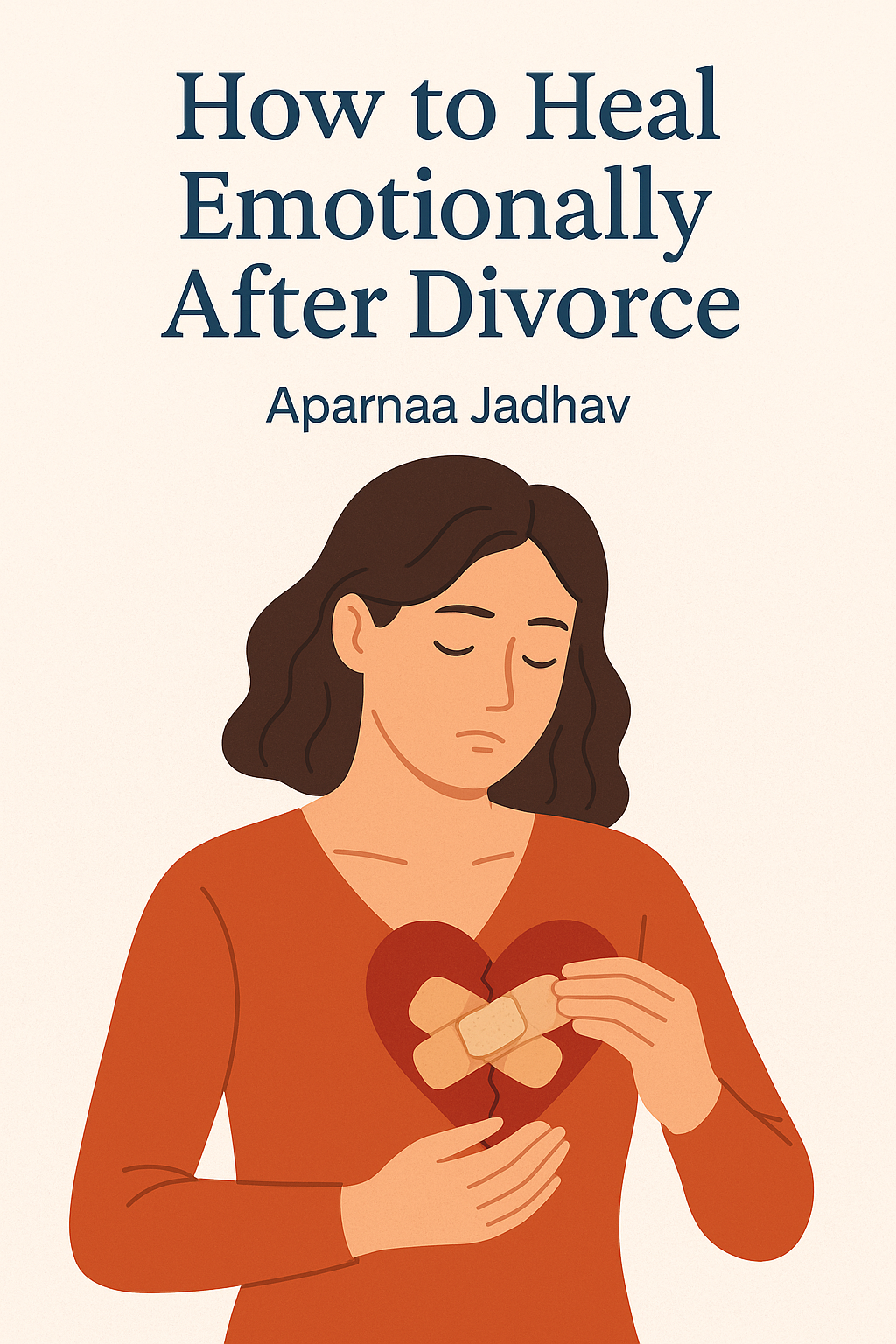
Divorce is never just the end of a relationship. It’s a shift in identity, routine, and emotional balance. Many people feel lost, overwhelmed, and unsure of where to begin again. But just like physical wounds, emotional wounds need care and attention too. This is where emotional healing after divorce becomes essential. It’s not about forgetting or rushing the process—it’s about giving yourself space to feel, accept, and eventually move forward with more clarity.
In this blog, we’ll walk through how you can begin this journey gently and gradually. With small, steady steps, you can reclaim a sense of self, stability, and peace.
Understanding Your Emotions Is the First Step
Grief Comes in Many Forms
Grieving the end of a marriage isn’t limited to sadness. You may feel angry, confused, relieved, or even guilty—all at once. Recognising these emotions as natural can help you accept what you’re going through without judgment. Emotional acceptance is key before you can move toward meaningful recovery.
You Are Not Alone
Many individuals go through similar emotional paths after divorce. Speaking to a friend, a support group, or a professional counselor can make a significant difference. Just being heard can help lighten the emotional weight.
Rebuilding a Daily Routine Brings Stability
After a divorce, routines often get disrupted. Suddenly, your days feel unfamiliar, and your sense of direction can fade. Creating a simple routine—even if it starts with just waking up, eating well, and walking every day—can create a sense of normalcy again.
Sticking to a gentle routine helps lower emotional stress and provides structure when everything else feels uncertain. Over time, these small habits become anchors for healing.
Reconnecting with Yourself
Spend Time Doing What You Enjoy
When was the last time you did something purely because it made you happy? Whether it’s painting, reading, gardening, or simply sitting quietly with a cup of tea—reintroduce yourself to the activities that bring you calm.
Doing things you enjoy helps rebuild self-worth and fosters mindfulness, an essential part of emotional healing after divorce.
Practice Mindful Living
Slowing down helps you hear your inner voice. Mindfulness practices like journaling, meditation, or simply being present in nature help reduce emotional noise and encourage reflection. This quiet space is where personal insights and healing begin to emerge.
Redefining Relationships and Boundaries
Divorce often reshapes relationships—not just with your ex-spouse but with family, friends, and even yourself.
Set Boundaries with Your Ex
If you share children or property, communication may still be necessary. Setting clear and respectful boundaries makes interactions more manageable and less emotionally draining. Let communication be practical, respectful, and brief if needed.
Surround Yourself with Supportive People
Choose to be around those who listen without judging and give you emotional space to be yourself. Avoid those who constantly offer opinions or criticism—you need understanding, not pressure.
Working with a Professional Can Accelerate Healing
Therapists, counselors, or coaches can guide you through complex emotions and help you see things from a more balanced point of view. Whether it’s working through grief, identity changes, or future planning, professional help offers structure and strategies.
Therapy offers a confidential, non-judgmental space that focuses entirely on you—a space that’s often needed when rebuilding after divorce.
Let Go to Move Forward
Letting go doesn’t mean forgetting or pretending nothing happened. It means accepting that the past can’t change, and slowly allowing yourself to focus on the present.
Forgive for Your Own Peace
Forgiveness isn’t about excusing someone’s behaviour—it’s about releasing the hold that anger or pain has on your daily life. Holding on to resentment only ties you to the past. Forgiving, even silently, is a gift you give yourself.
Reflect, Don’t Ruminate
Reflection is productive when it helps you learn or understand. Rumination, on the other hand, keeps you stuck in a loop of “what ifs.” Learning the difference between the two can save you a lot of mental energy and help you stay focused on what’s ahead.
Building a New Life – Gently and Gradually
You don’t have to build your “new life” overnight. Start small:
- Revisit your goals (personal or professional)
- Make time for new hobbies or interests
- Connect with others without fear or pressure
- Say yes to things that feel right
Every small decision builds momentum. Over time, these small changes start adding up and shape the next chapter of your life.
Conclusion
Healing is not a race. There’s no one way or fixed timeline for emotional healing after divorce. What matters most is that you’re moving—at your own pace, in your own way. The road ahead might feel unclear at times, but trust that with patience, it becomes easier to walk.
Take every day one step at a time. Be kind to yourself when you stumble. Give yourself credit when you get up. Your emotions are valid, your experience matters, and your healing is worth prioritising.
Emotional healing after divorce is about rebuilding—not just your life, but your peace of mind. As you grow through what you’ve gone through, remember that it’s okay to ask for help and important to honour your journey.
If you’re feeling ready to begin, start small today. Choose one thing that supports your healing and stay consistent. The change happens in the gentle repetition of care.
Aparnaa Jadhav believes that emotional wellness is a journey, not a destination. With guidance, patience, and trust in yourself, healing becomes not only possible but deeply empowering.
To know more or seek guidance on your emotional well-being, reach out to Aparnaa Jadhav today.






